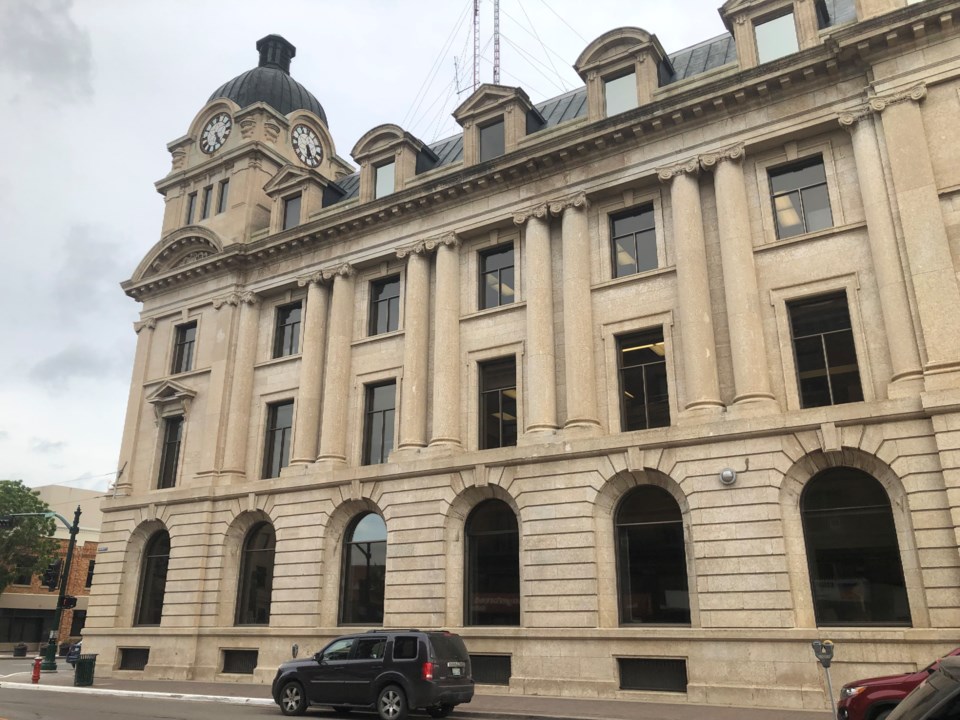Frustrated with continually losing revenue from property assessment appeals, city council has replaced the quasi-judicial citizen-based Board of Revision with a private company in hopes of receiving more favourable decisions.
During its May 24 regular meeting, council voted 5-1 to hire the Meota-based Western Municipal Consulting (WMC) to provide Board of Revision (BOR) services for this year.
Coun. Kim Robinson was opposed, while Coun. Crystal Froese was absent.
Appeal losses
The municipality has lost significant tax revenue over the past 10 years because of the BOR’s assessment appeal decisions, said city manager Jim Puffalt. In 2021, Moose Jaw lost $358,704 in tax revenue, with most losses happening in the commercial and industrial property classes.
Roughly $154,000 was lost due to assessment errors — which have been corrected by agreements to adjust — while the other lost $204,000 due to BOR decisions.
“We think that with an independent board, we’ll be able to flip the appeal process,” Puffalt said.
History shows that the Saskatchewan Municipal Board — the highest complaint level — overturns most BOR decisions and rules in favour of the city, he continued. However, this takes several years, leaving city hall in a difficult cash position.
History also shows that a privately contracted BOR making the correct decisions at that initial stage could reverse the current years-long process to reach a conclusion, Puffalt remarked. This could reduce the city’s need to prepare for annual appeal losses of $200,000.
The SMB overturned all 14 of the BOR’s decisions in 2019 and all 20 decisions in 2020, a council report said. Meanwhile, the committee overturned 15 of 29 appeals in 2018 and 21 of 28 appeals in 2017.
Financial costs
The Saskatchewan Assessment Management Agency (SAMA) spent over $80,000 in legal fees last year fighting assessment appeals, Puffalt said. Contracting out a full-time BOR could reduce SAMA’s legal fees, address its rising costs and possibly leave a surplus at the end of this four-year evaluation cycle.
Last year the municipality paid the part-time citizen board and its secretary $68,000, he continued. If Western Municipal Consulting had performed the work using the same rates and hours, the city would have paid the company $124,812.50.
WMC also charges a yearly retainer fee of $250, mileage for appeal hearings, printing fees, and postage.
“… being able to move money back the other way (from successful appeals) would give us money to fund additional costs,” Puffalt said.
“Nothing against the existing or previous board members, but these independent boards do this on a full-time professional basis. This will allow us to ensure Board of Revision decisions are made in a timely fashion and the business cycle is not affected by that.”
City administration did not provide a draft agreement during the meeting, which concerned Coun. Kim Robinson, since he felt council had nothing to review. He also wondered how they were saving money when hiring WMC would cost twice as much.
The municipality will save money since it won’t have to budget for appeal losses at the BOR level, said Puffalt. City hall also believes efficiencies will occur but will have a better idea after the first year.
Appreciation
Council has appreciated the board members’ time and efforts over the years, said Mayor Clive Tolley. He called board chair Terry Gabel — a 10-year member — and the other members to thank them since they had performed good work for Moose Jaw.
“It is a big job and they’ve had to do a lot of reading and understanding a lot of things that are complicated … ,” said Coun. Heather Eby.
Council is doing something new by hiring a private company and attempting to improve “a sometimes very frustrating process,” she continued. However, if this doesn’t work, the city can return to the citizen-led board.
“I hope people can see that city council has really tried to find ways to be progressive and make things work a little better,” Eby added. “And this is us trying to do that.”
The next regular council meeting is Monday, June 13.




